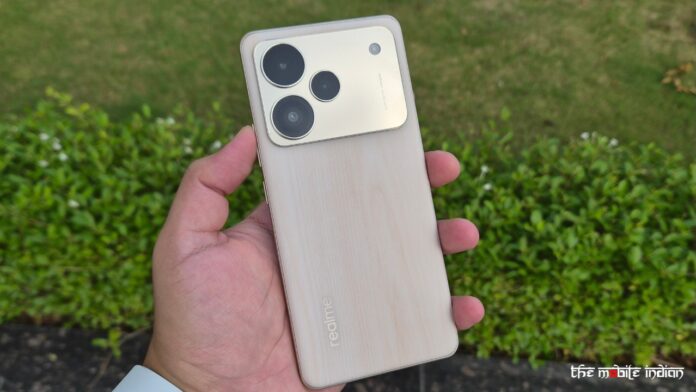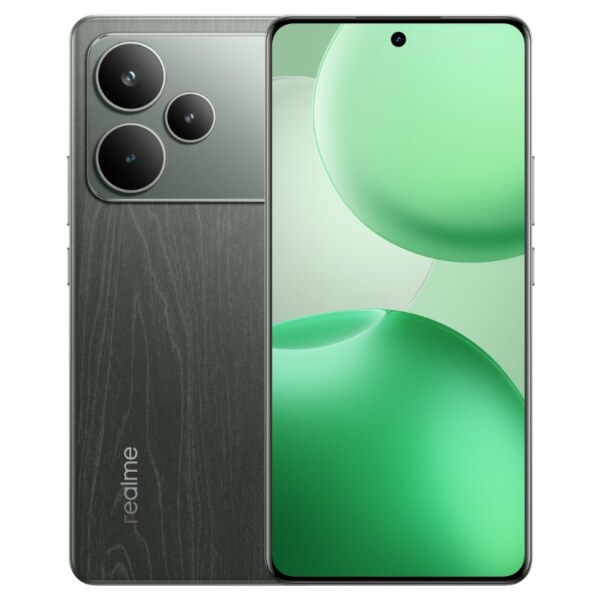Realme P4 Pro 5G is the latest P-series smartphone from Realme with which the brand promises to offer a balanced experience but has it been able to achieve this? We’ll let you know by the end of our detailed Realme P4 Pro 5G review.
Design & Display
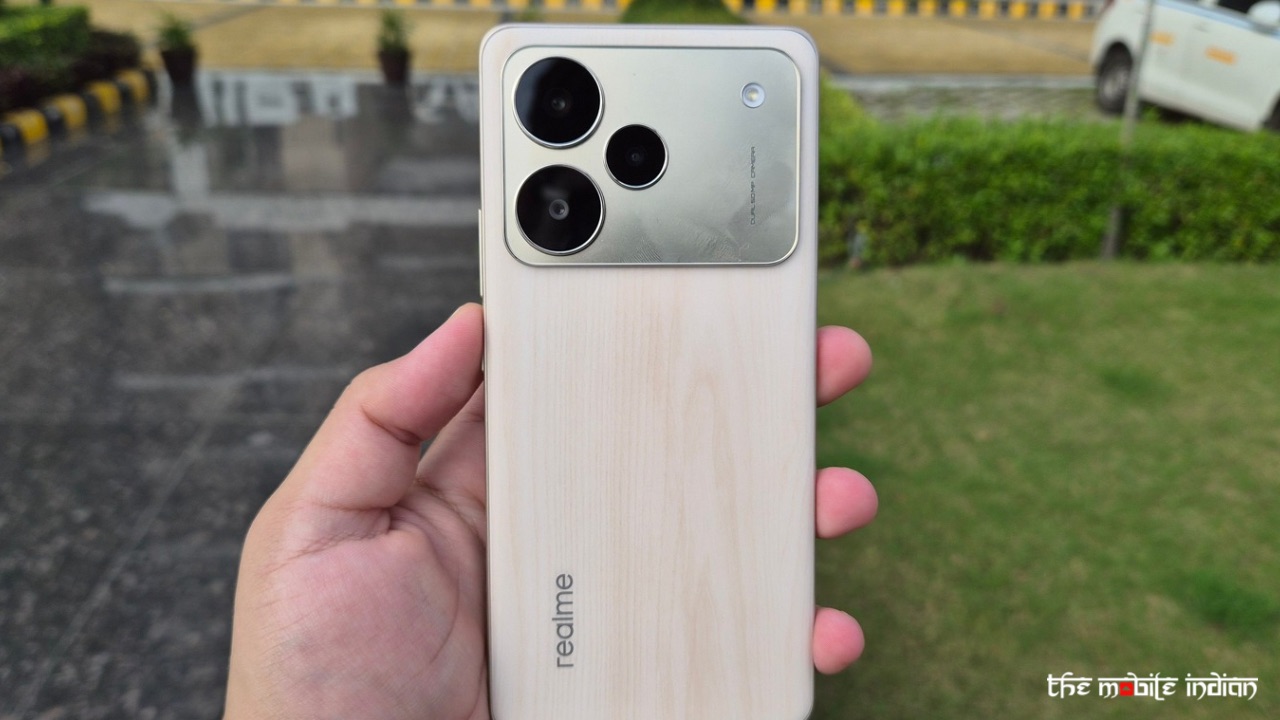
The Realme P4 Pro 5G is available in three shades and we got the oakwood one from the brand which is completely matte finish on the back along with a plastic frame.
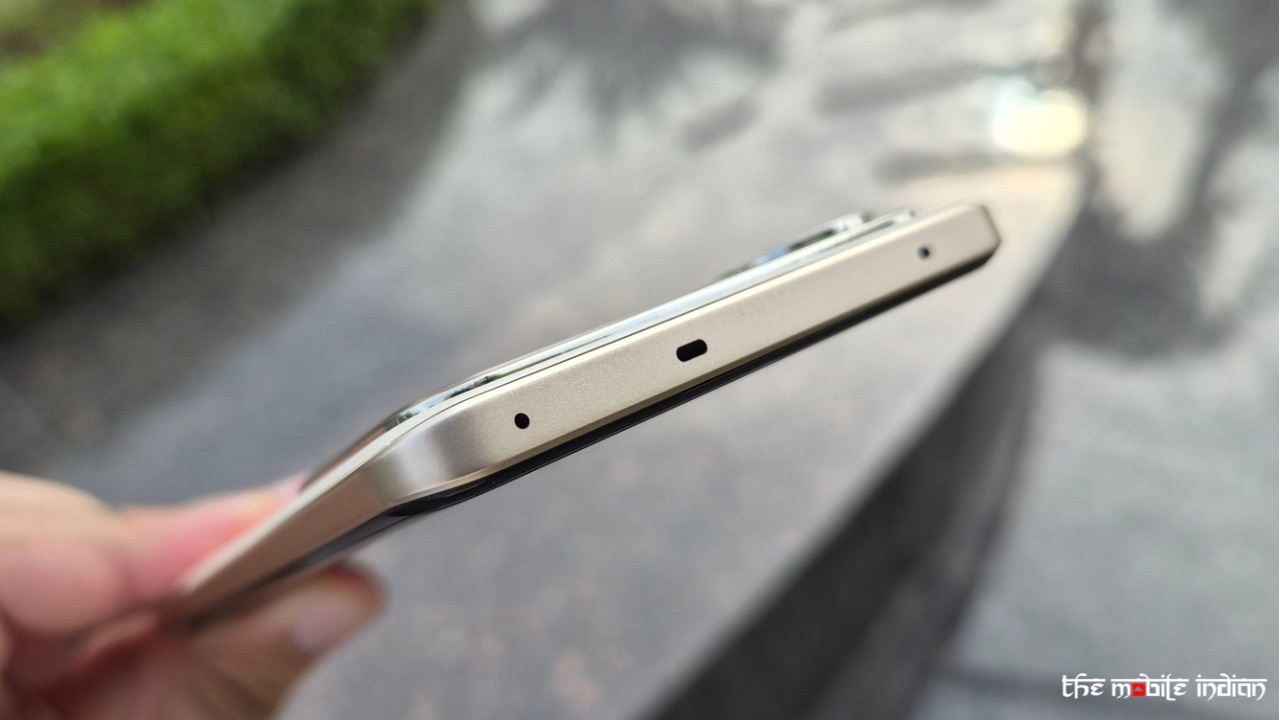
The camera module on the back has a glossy finish that can attract fingerprints but due to the dual-tone finish it gives to the back of the device, it makes it look even better than how it already looks. We don’t see many smartphones with such looks nowadays so the unique design accounts for an eye-catching experience.
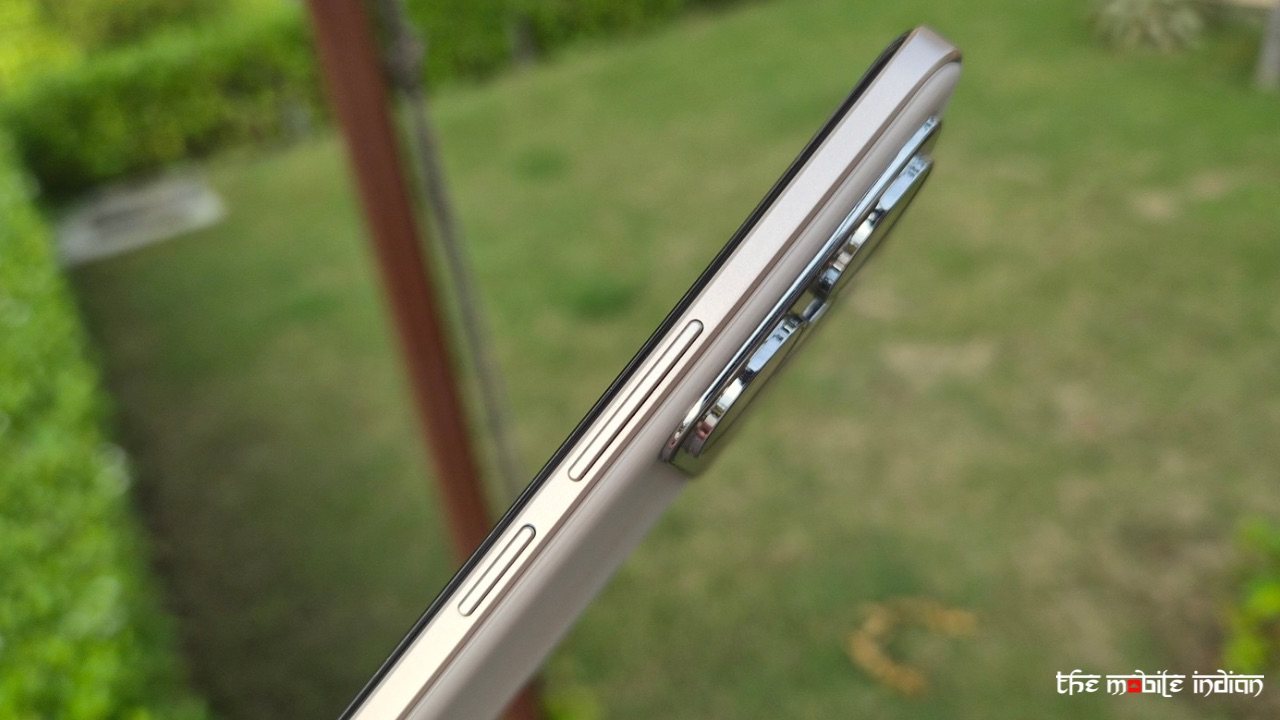
The device is slim and lightweight so one-hand use won’t cause fatigue even during extended use. It does feel premium to hold as well and is impressively thin for a battery this size. The buttons on the right are tactile to click but the Haptics are below average as it’s a rotary motor that rattles more than it vibrates. The handset is IP65 + IP66 rated also.
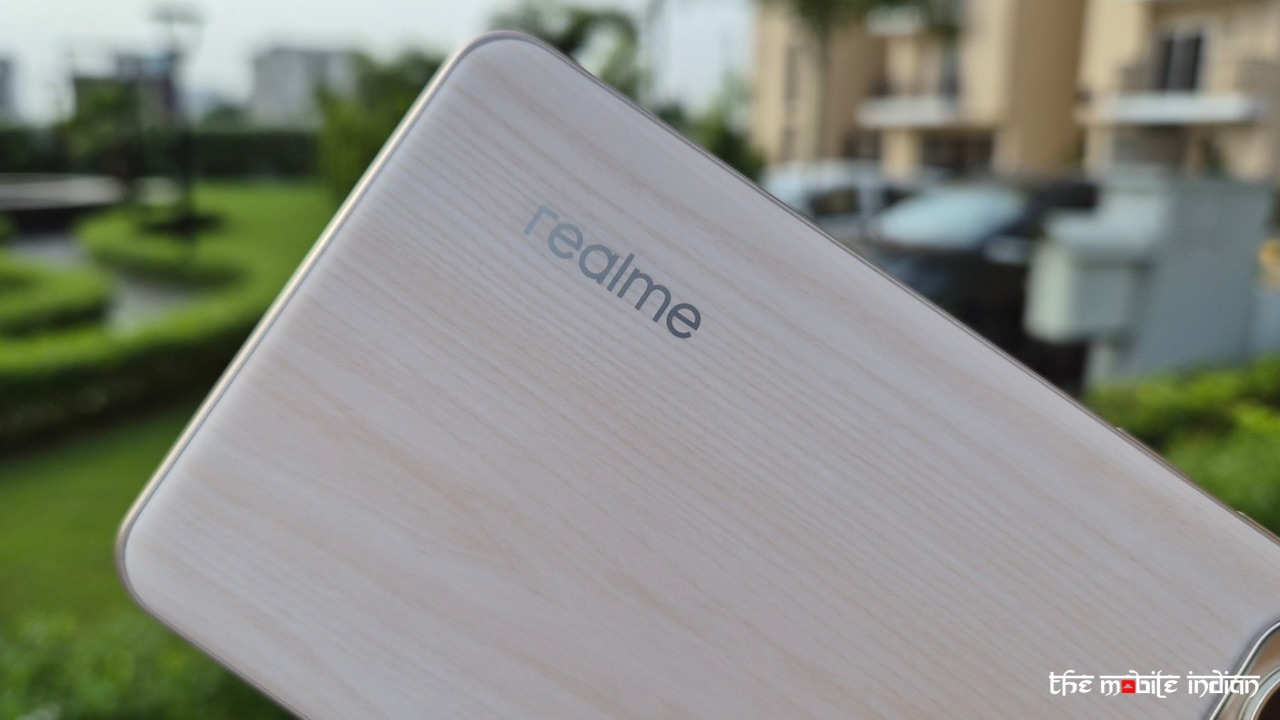
The stereo speaker setup is a welcome feature but again, don’t expect top-notch audio quality. It is loud, has clarity and good stereo separation but the audio lacks depth, sounds flat, misses out on bass.

At the front, the Realme P4 Pro 5G gets a 6.83-inch quad-curved AMOLED Display with 1.5K Resolution and offers 10-bit colour depth, 4608Hz PWM dimming, 453 ppi, 100% P3 colour gamut coverage, 144Hz refresh rate, up to 6500 nits peak brightness and 240Hz touch sampling rate. It also has Gorilla Glass 7i protection.
It’s a good panel on paper and in real world usage too. It produces punchy colours and sharp content and gets bright enough outdoors. The viewing angles are excellent and so is the touch sampling rate in games.
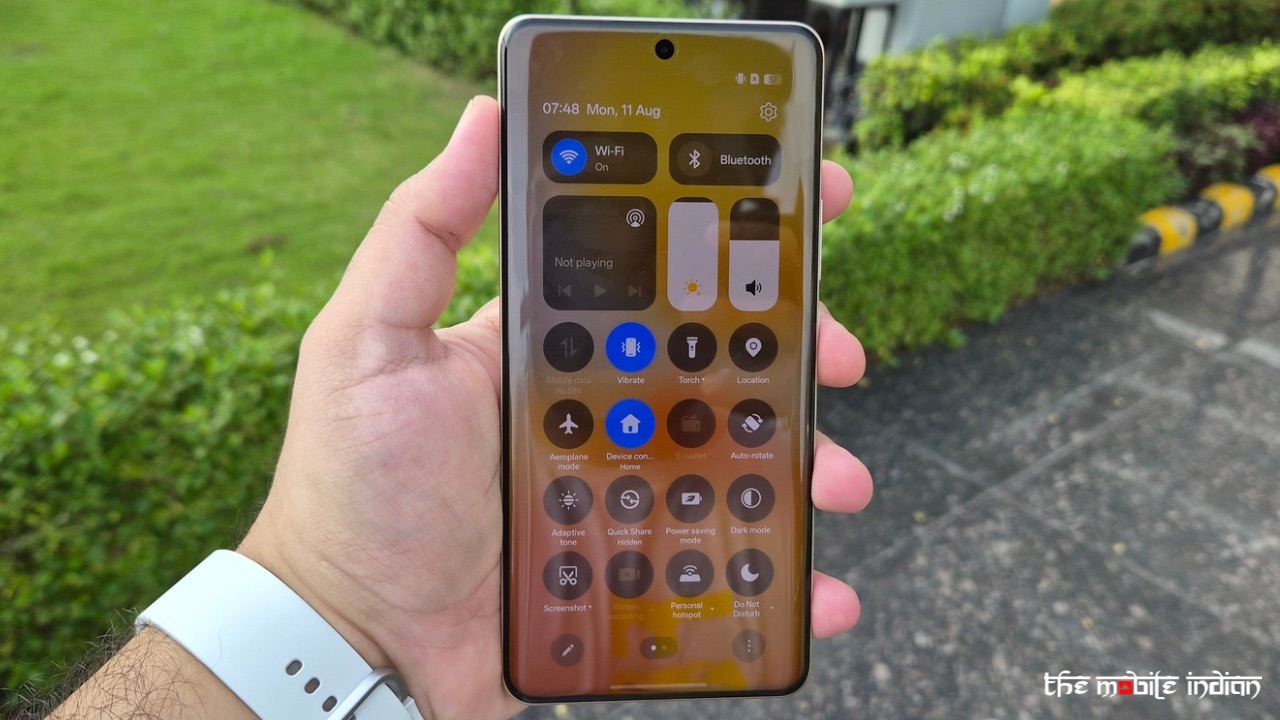
A 144Hz Refresh Rate is great on paper but in reality, the display hardly reaches that value. A select few apps like Compass work at 144Hz while most other apps are capped at 120Hz. There are a few AI features for the panel, such as AI Hyper Motion that can upscale frame rates up to 120Hz for various animations, AI Hyper Clarity, and AI Always-on HDR.
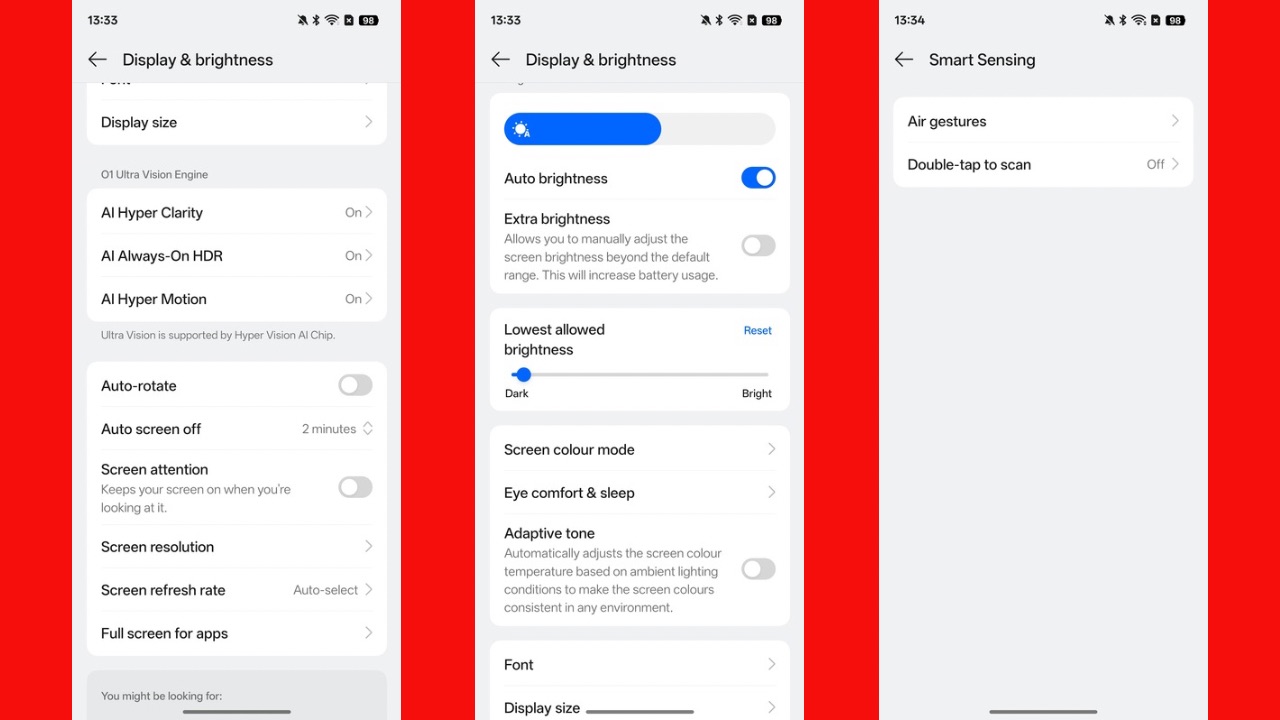
These features are supported in select streaming apps but I have seen the Hyper Clarity and Always-on HDR features in other Oppo and OnePlus phones but under a different name, so there’s nothing new or extraordinary there with these features according to my experience.
Aside from that, streaming content on this panel is a treat, thanks to deep blacks and sharp images. Furthermore, the bezels are even on all sides which is noticeable in daily use in terms of aesthetics and are considerably thin at the same time.
The in-display fingerprint sensor works as it should, without any issues.
Software & Performance
The Snapdragon 7 Gen 4 Processor powers the device, coupled with up to 12GB LPDDR4x RAM and up to 256GB of UFS 3.1 storage.
Performance-wise, I didn’t notice any major issues with casual games or in daily use. The animations were fluid while RAM management was also efficient. The device can, however, respond slowly to your touches at times but again, that’s something an update could easily fix.
With gaming titles like Asphalt, BGMI, the device performs decently for the price, with the latter running at medium graphics. Asphalt Legends can even run at 90 FPS which is great. Casual titles like Mo.co and Bullet Echo work even better.
Realme UI 6.0 based on Android 15, which is essentially ColorOS, has great animations across the system along with a wide array of customisation features. Before we talk of those, let me point out the cons first, including no full AOD implementation despite the fact that it’s a capable panel.
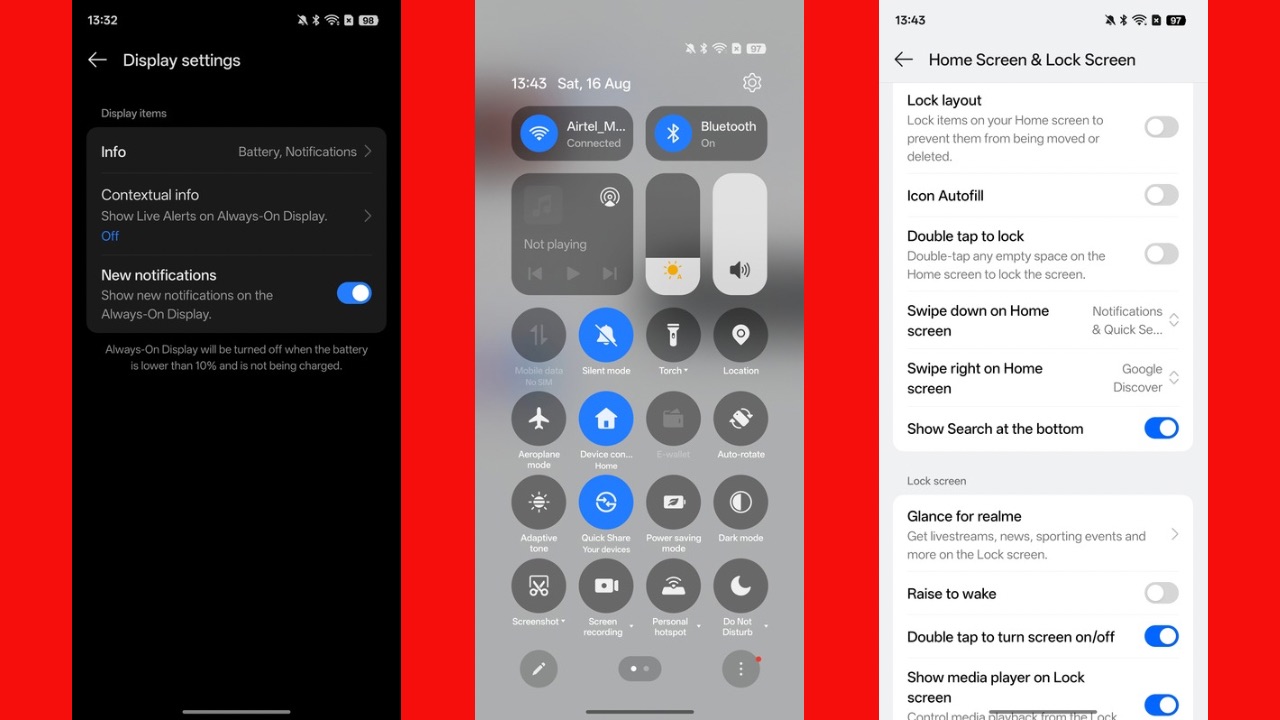
You can turn it on but it will only appear when you pick up the device or move it a little. Some of Realme’s first-party apps were also there upon setting up, like Finshell pay, App market, Game Center, etc., along with apps like Facebook and Fitbit, all of which were easily removable. Further, you cannot set the app opening animations’ speed like you can in Oppo and OnePlus devices, and that’s likely because this is a slightly lower end handset compared to those devices which support it.
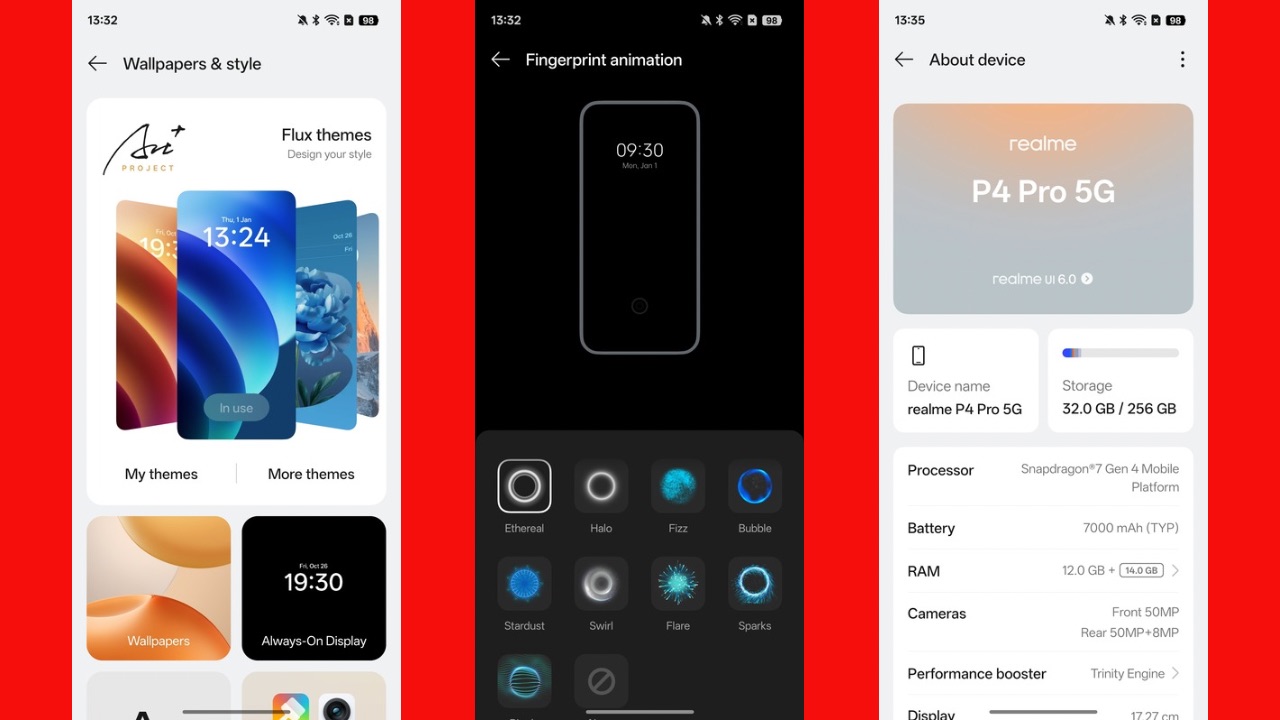
As for features and customisation, there’s a plethora of options, like the ability to change fingerprint animations, enable EDGE lighting, change the system colours based on the wallpaper colour, use smart sidebar and more.
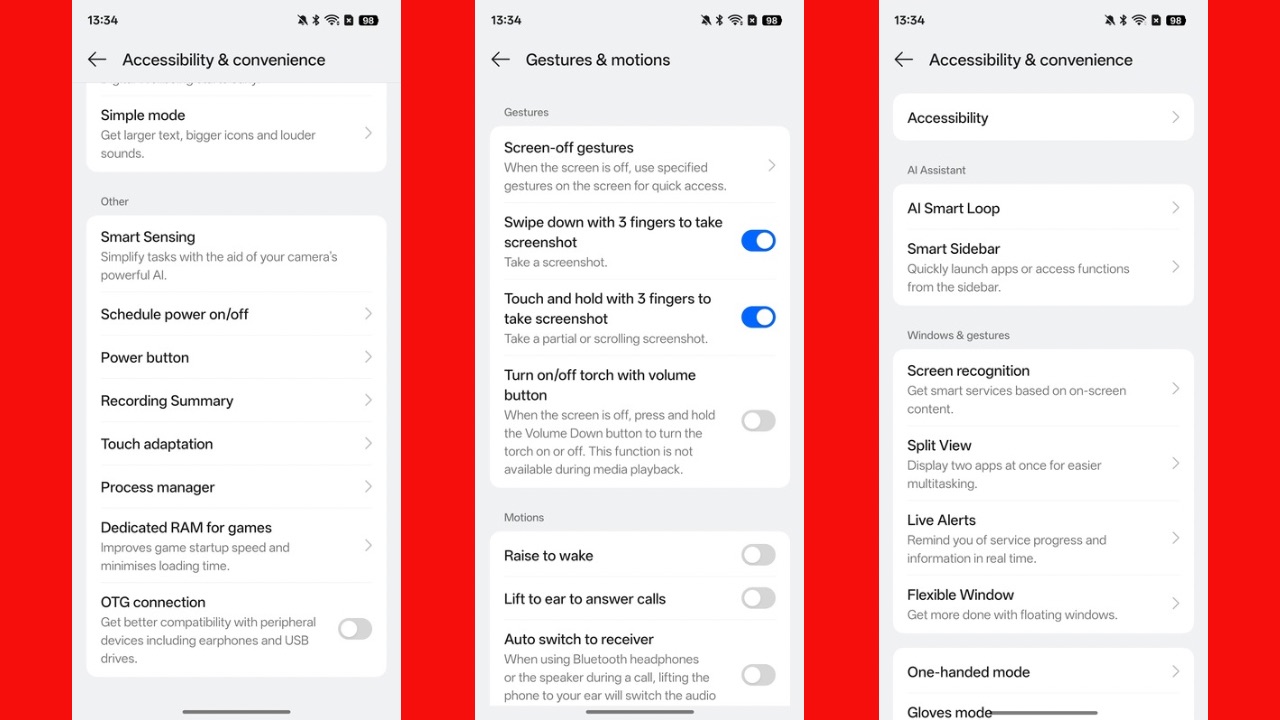
Accessibility, AI, and convenience features include the likes of motions and gestures, air gestures, recording summary, AI Smart loop, screen recognition, and the Live Alerts feature that mimics the function of Dynamic Island in iPhones.
Read More: Realme GT 7 Review: Long-Lasting, Powerful, and Ready for Anything
For security, you get the ability to hide apps, lock apps, or move your files in a Private Safe with a separate Password than that of your lock screen.
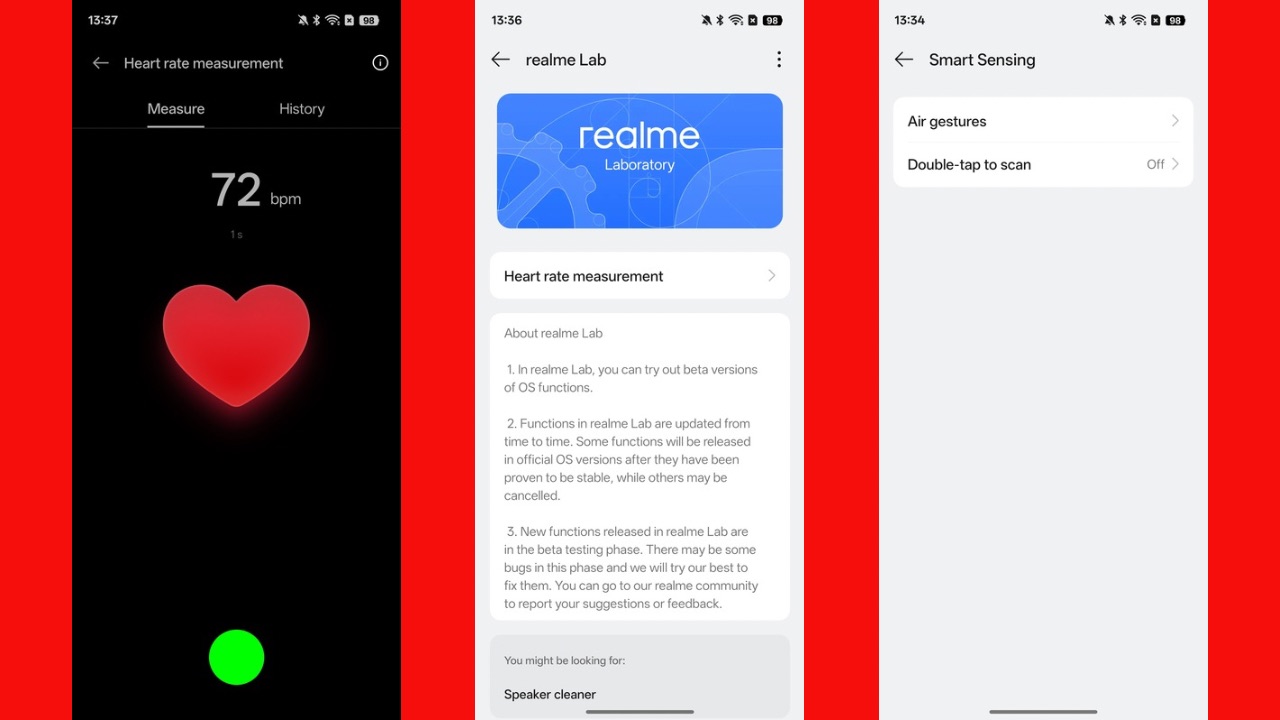
In the Realme Lab section, there’s also a heart rate measurement option where you can press and hold the fingerprint sensor to measure your heart rate. The feature works, and was close to showing an accurate measurement compared to say, a Galaxy Watch, or a real Blood Pressure monitoring machine.
The device is set to receive 3 Android OS updates and 4 years of security updates according to an official confirmation by the brand which is an excellent policy for a smartphone that costs this much. The phone was running on the July 2025 security patch out of the box which is quite a recent one.
Connectivity wise, Wi-Fi, Bluetooth, and 5G worked fine. However, there’s no NFC support which is a bummer and to add to that, the device also failed to run wireless Android Auto with my car and that’s a pretty basic feature that should’ve worked seamlessly.
Battery & Charging
The Realme P4 Pro 5G packs a 7000mAh battery with 80W fast wired charging. A cell this big should be enough for at least 2 days of casual use and I am happy to report that it’s true for the P4 Pro 5G.
You can easily get through 2 days if your usage remains casual like mine, including using Instagram, X, chatting on WhatsApp, some video calling and normal calling, along with streaming videos.
With this usage pattern, I could easily touch 9 to 10 hours of screen-on time and that’s excellent. With heavier use, you can kill it in less than two days but even by those standards the runtimes are outstanding. While I did expect slightly more screen-on time in some scenarios, I was still thoroughly impressed with Realme P4 Pro 5G’s battery backup.
Realme P4 Pro 5G took around 1 hour and 24 minutes to charge from 0 to 100% in our tests. While that might not sound groundbreaking, it’s still quite impressive considering the size of the battery.
Cameras
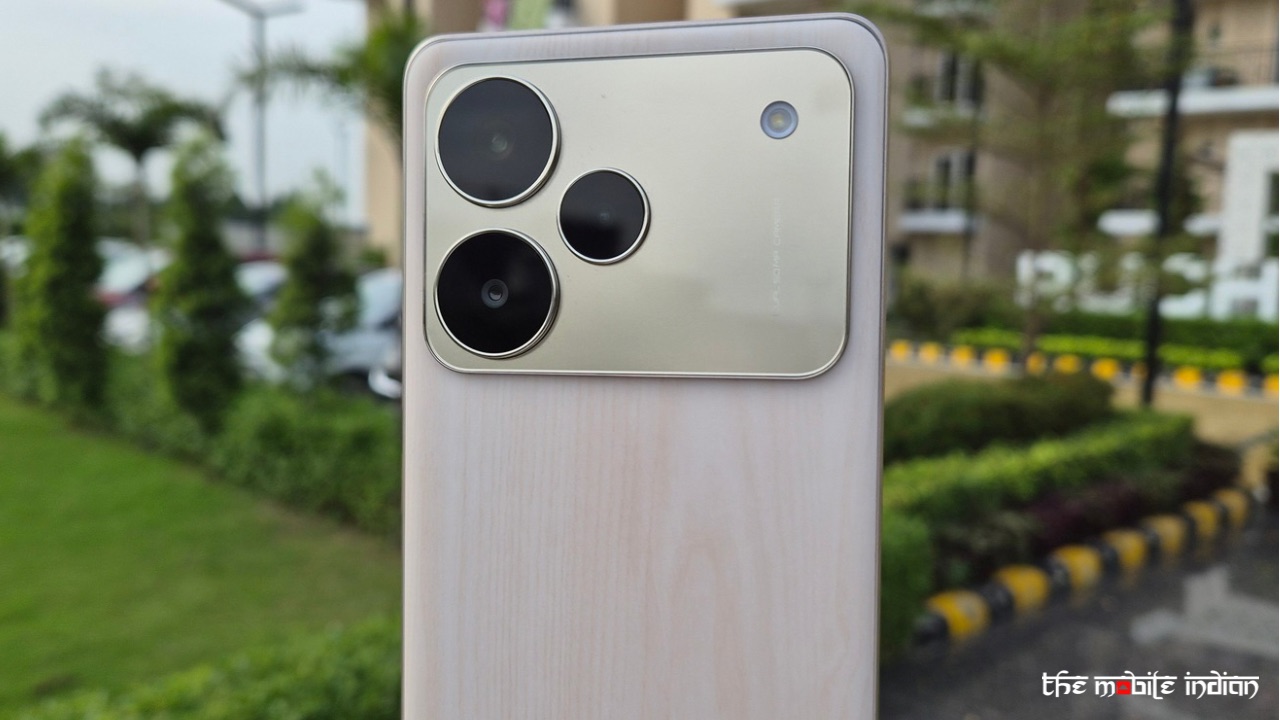
Realme P4 Pro 5G has a 50MP Sony IMX896 f/1.8 primary sensor with OIS, paired with an 8MP f/2.2 ultra-wide angle sensor. There’s a 50MP f/2.4 sensor on the front for selfies.

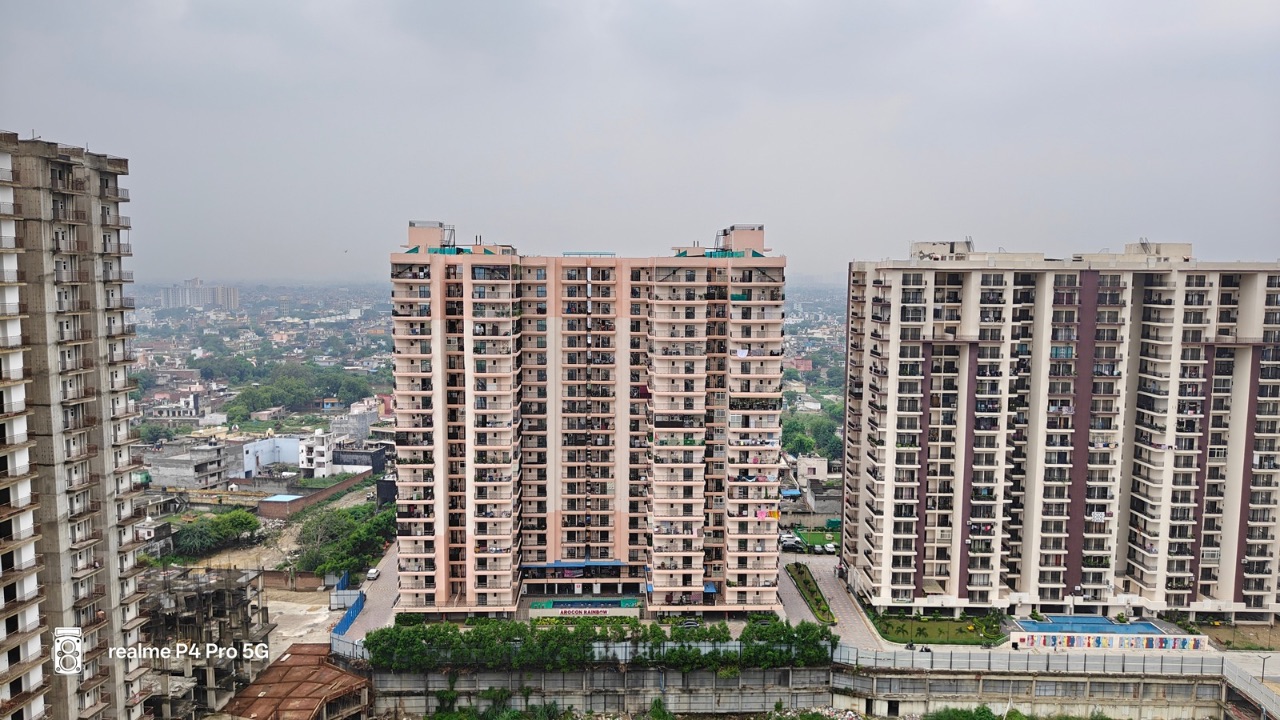
With the main sensor, you get plenty detailed photos that are sharp and have great dynamic range. The colours remain natural and lifelike. There are two modes including vibrant and crisp where the latter drops the exposure a little and enhances the contrast in photos. However, I preferred the vibrant mode for shooting considering it gave me better results in terms of colours.
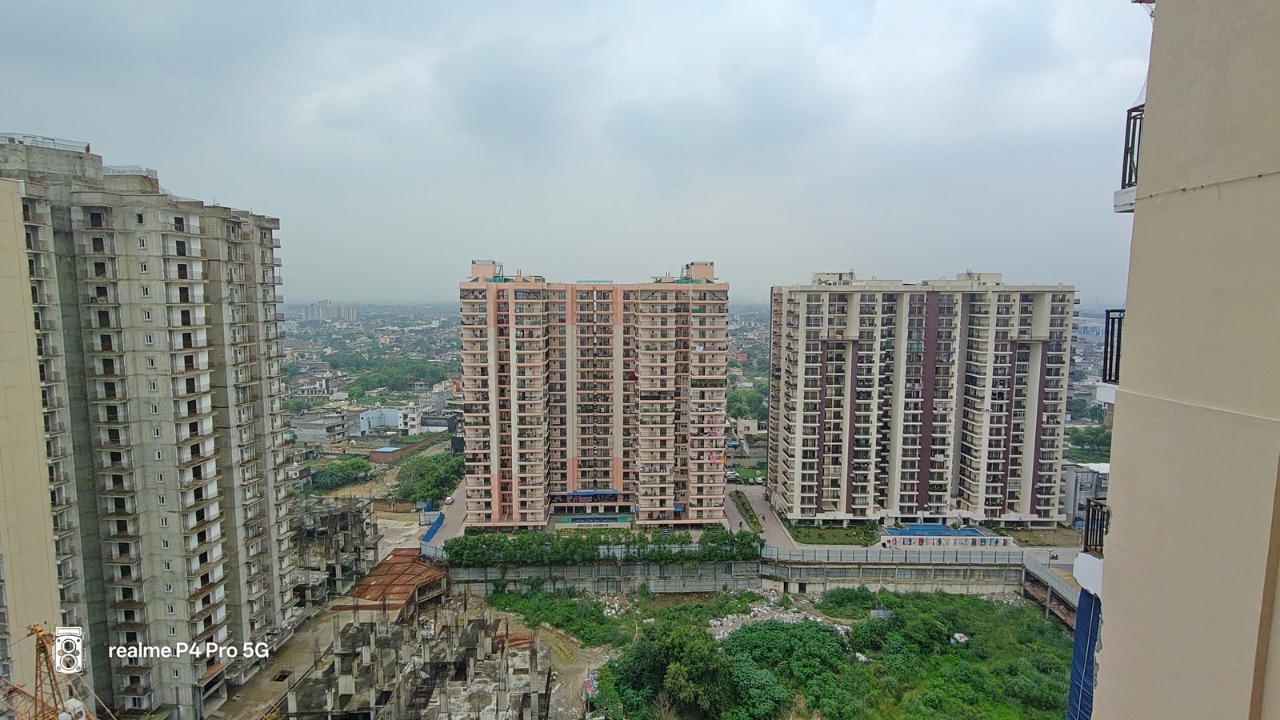
The ultra-wide angle sensor has a considerably wide viewing angle and along with that, the colours look decent but aren’t very similar to shots from the main camera, as these have quite a cooler tone which makes them look a little too blue. Further, the dynamic range does drop along with a slight reduction in detailing as well. Despite that, the edge distortion correction remains decent and the overall photo looks crisp and clear unless you go Pixel peeping.
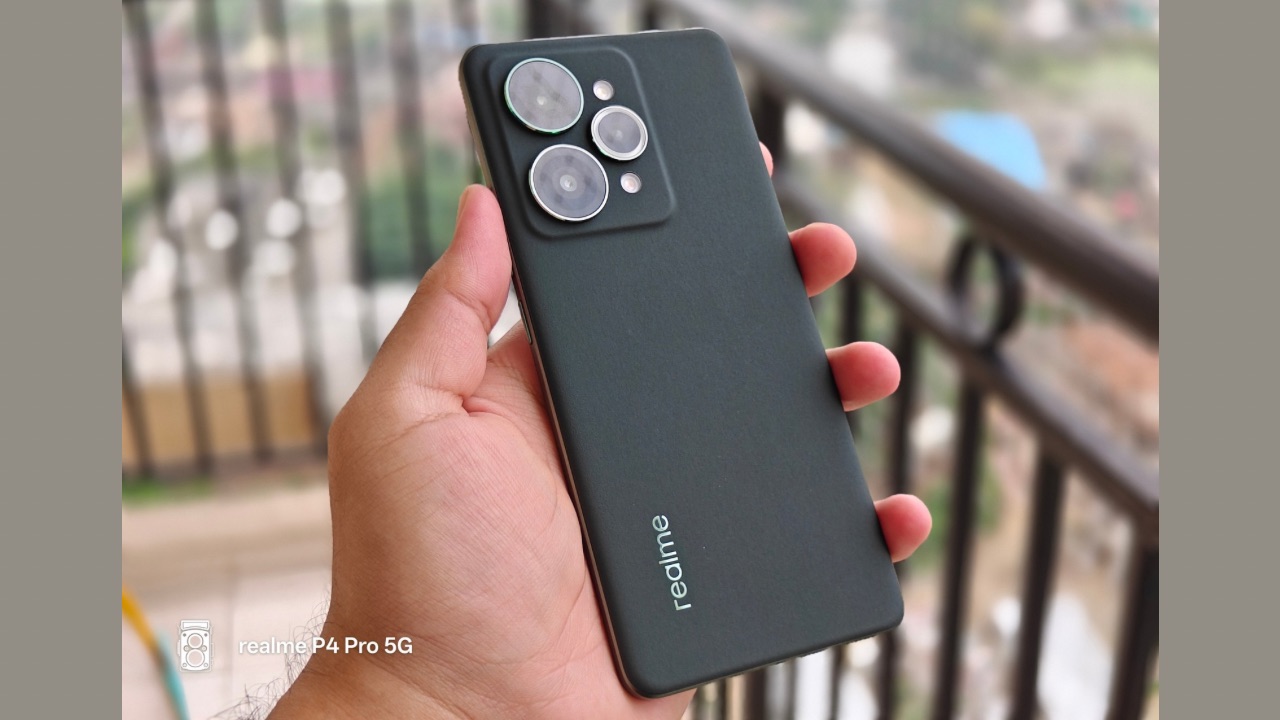
Portraits from this sensor were a mixed bag. While the amount of blur in the background and the details in the shot were on point, the colours looked different compared to how they looked in the real world. For instance, in the shot above, the colour of the Realme 15 Pro in my hand is green but it appears black in the photo, which also suggests that exposure levels and dynamic range could’ve been better when shooting portraits.
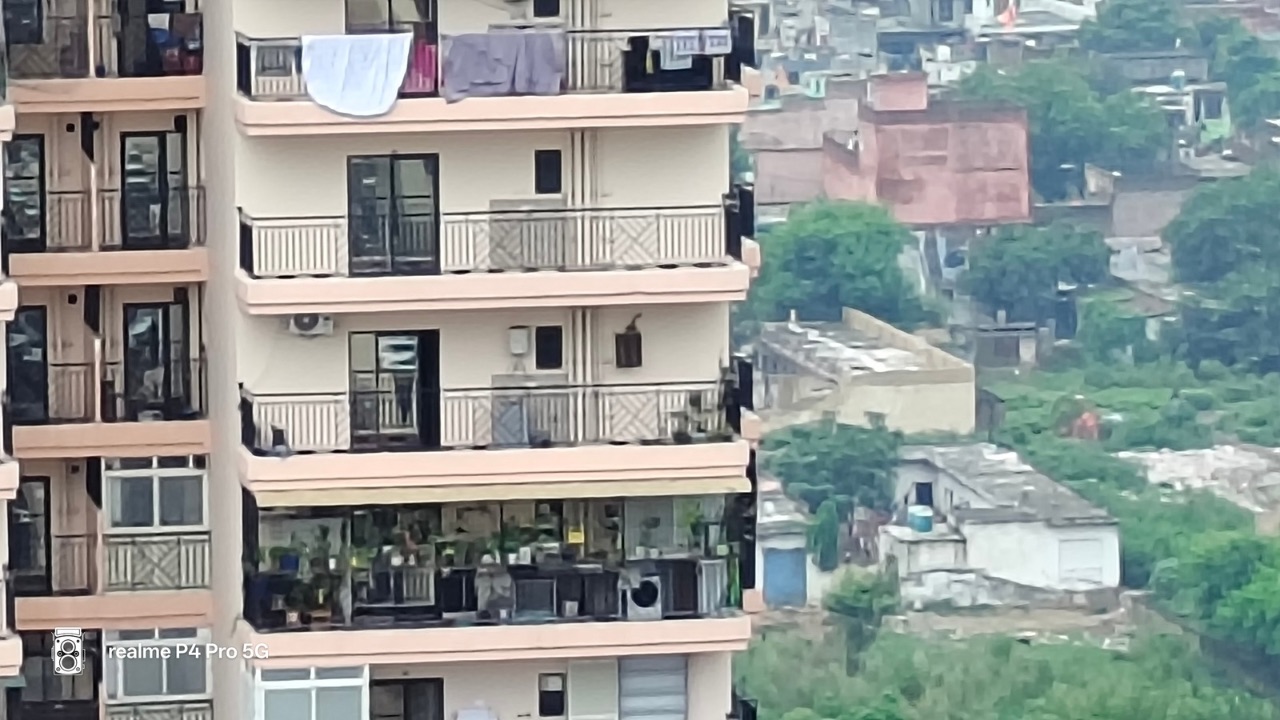

The device can zoom in at up to 20x but anything beyond 2x starts to lose out on details, sharpness, and the overall clarity. Even at 2x, the shots are just acceptable. Sometimes even at 2x, the photos are not usable, such as when shooting in darker lighting conditions.

Speaking of low lighting environments, the device tries its best to maintain clarity and even does to some extent. However, the shots aren’t very detailed and do have some noise. Turning on Night mode doesn’t help a lot in these conditions.

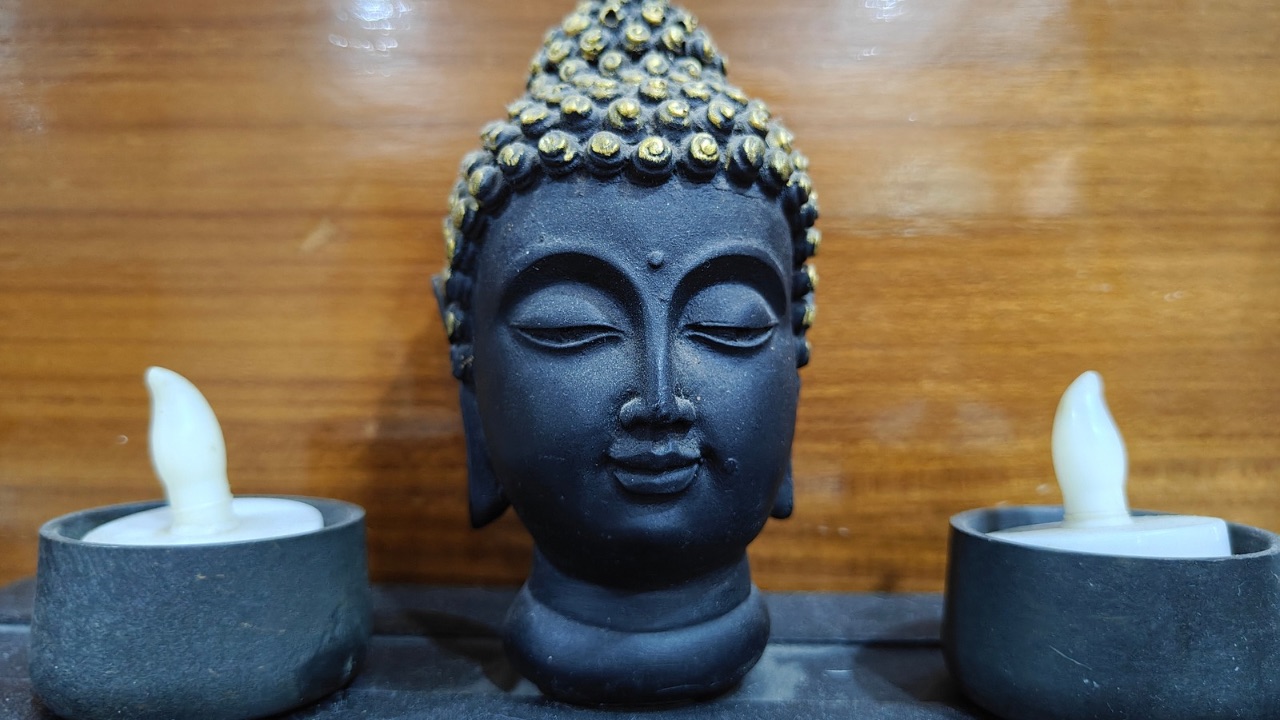
Under artificial lighting though, things get much better, as shots come out to be highly impressive. They don’t disappoint in any major area except for colours which can sometimes look a little too faded. Yes, you can switch to the Crisp mode for better colours but that messes up with other aspects of the shot.

When it comes to selfies, the front camera does a commendable job of reproducing natural skin tones while delivering vibrant colors and sharp details. The dynamic range is well-balanced, and edge detection in portrait shots is handled with precision. All in all, it’s an excellent sensor for anyone who enjoys taking plenty of selfies.


